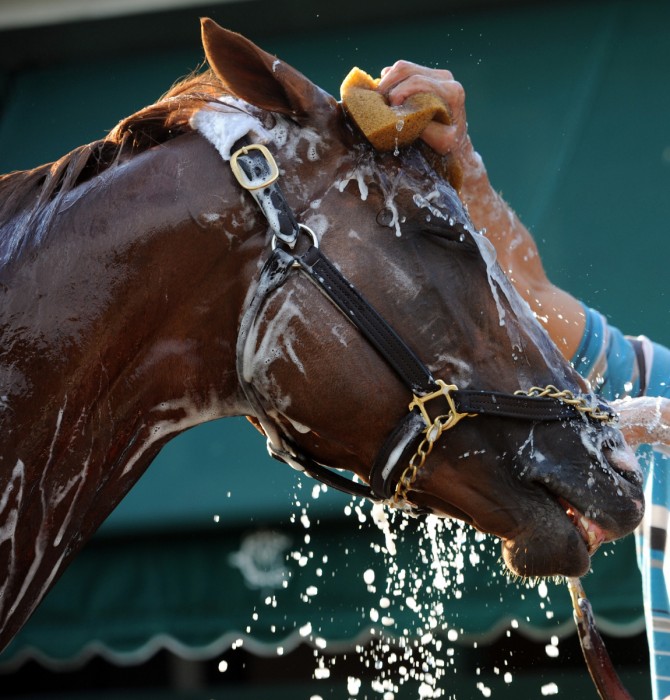
Water and electrolyte balance in hot and humid conditions
This study investigated rehydration after exercise in repeated training sessions in hot (28°C) and humid (58%) conditions and compared isotonic glucose-electrolyte solution to water alone. The main finding was that the electrolyte solution gave a significantly better recovery of bodyweight than water alone. Changes in bodyweight give a good indication to the extent of dehydration and recovery of water balance after exercise.
Nine riding horses, mean age 9 years were used. All horses had been trained for 3-day- eventing for at least one year prior to the study and they were all adapted to the treadmill. Three months before and during the study, the intensity of training was kept constant and all the horses followed the same training schedule and were fed the same diet.
All horses performed on a treadmill a competition exercise test and 24 hours later a standardised exercise test at a temperature of 28°C and humidity 58%. After the competition test they were given isotonic glucose- electrolyte solution via a nasogastric tube, except after the 5th trial they were given water.
Blood lactate, plasma concentration, heart rate, body weight and temperature were determined. In this study, plasma osmolality was significantly lower 30 min after water treatment than electrolyte treatment. Water may reduces the urge to drink and increases output of urine, because of haemodilution and a decrease in plasma osmolality and sodium concentration. Water intake of these horses tended to be lower after plain water treatment, than electrolyte treatment.
-> Administration of an isotonic glucose- electrolyte rehydration solution after exercise helps to overcome dehydration better than water alone. Do you give your horse electrolytes?
> From: Hyyppä et al., Equine Vet J 22 (1996) 108-112. All rights reserved to Newmarket Ltd.. Click here for the online summary.


